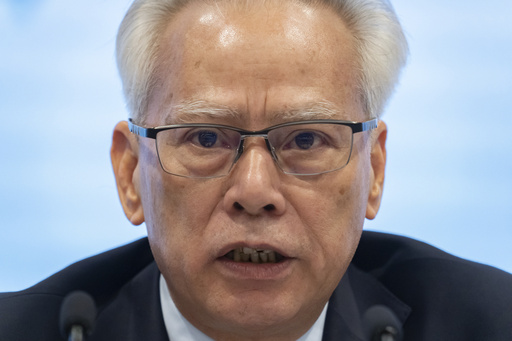Macao is gearing up for a significant shift in leadership as approximately 400 supporters of Beijing are set to cast their votes on Sunday to support the one candidate for the city’s highest office. This election is largely ceremonial and will likely see former chief justice Sam Hou Fai become the first leader born in mainland China, marking a notable change from past leaders who typically hailed from influential families in the former Portuguese enclave.
Sam Hou Fai, who is 62 years old, has garnered strong endorsements, having already received backing from 386 of the 400 members of the election committee. His ascension to power represents a break from tradition; analysts suggest this may indicate a decrease in the hold that business interests have had over the government in recent years. With a background rooted in law, Sam’s leadership is expected to prioritize a policy agenda aligned with Beijing’s expectations.
The populace of Macao, which numbers around 687,000, holds minimal voting privileges, leading to varying opinions about this election. Some hope that Sam will prioritize public sentiment over business demands, while others feel largely excluded from a process they cannot directly participate in. Nevertheless, many residents appear to be accepting of Sam’s non-local origins, given the city’s history as a settlement for migrants.
While Sam’s victory seems assured, significant challenges are anticipated regarding governance. Macao is unique in being the only region in China where casino gaming is legalized, but there has been a push from Beijing for the territory to broaden its economy beyond gambling.
In his campaign, Sam has expressed his intention to advance the current government’s strategies aimed at enhancing tourism and diversifying into sectors such as traditional Chinese medicine, finance, exhibitions, and trade. Yet, experts caution that the city will continue to depend heavily on the gaming industry for essential government funding to sustain social services and fulfill the strategic initiatives outlined by Beijing.
Beijing envisions Macao evolving into a premier global destination for tourism and leisure, while also acting as a vital conduit for trade with Portuguese-speaking nations. Many small local businesses are struggling as residents are increasingly choosing to shop across the border in Zhuhai, where they can find a broader array of goods at better prices. Compounding this situation, there has been a decline in spending by Chinese tourists in Macao.
The question remains as to whether Sam, who is relatively inexperienced in government leadership roles, can assemble an effective team capable of addressing these urgent challenges. Born in Guangdong province in 1962, he attended Peking University, a top law school in China, and later gained insights into Portuguese culture and law through studies at the University of Coimbra in Portugal, including a period of legal practice in mainland China.
Upon Macao’s return to Chinese sovereignty in 1999, Sam was appointed as the city’s top judge, serving in that capacity for almost 25 years before stepping down in August to enter the electoral fray. His judicial history includes navigating contentious cases, such as upholding a ban on a vigil commemorating the 1989 Tiananmen Square protests and denying participation to pro-democracy candidates in recent legislative elections.


